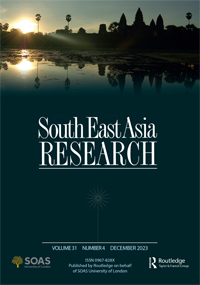This article investigates the strategies used by local social movements to respond to increased extractive industry activities in decentralized Indonesia since 2001. Using tin mining in Bangka Belitung (Sumatra) and gold mining in Banyuwangi (East Java) as case studies, this article explores how local democracy, including political decentralization that gives power to local government and societal organizations, has contributed to local social movements’ strategies to advocate the interest of local people, and what type of outcomes they have reached. This article argues that local democracy has indeed created spaces for citizens and social movements to express their grievances. However, results have been mixed, in part due to power relations within local governments, social movements’ chosen strategies and the features (history and scale of involved capital) of mined commodities

